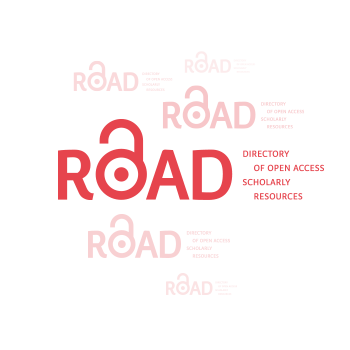The Role of Generative Artificial Intelligence Tools in Enhancing the Educational Experience and Learning Outcomes
DOI:
https://doi.org/10.59994/pau.2025.SI.93Keywords:
Artificial Intelligence, Generative AI Tools, Educational Experience, Learning OutcomesAbstract
This study aimed to analyze the impact of learning to use generative artificial intelligence tools on enhancing the educational experience and learning outcomes among postgraduate students. It also examined the opportunities and challenges associated with integrating these tools and explored their implications for the quality and effectiveness of higher education. The study adopted a qualitative research approach based on grounded theory principles, with the aim of providing an in-depth and systematic analysis of the data. The purposive sample consisted of 36 students enrolled in the Master’s programs in Human Resource Management and Digital Business Administration at Al-Quds Open University. The data collection instrument was designed using Google Forms and comprised five sections that included semi-structured questions (both open- and close-ended) to elicit students’ opinions and experiences. The data were analyzed using MAXQDA software, which contributed to ensuring accuracy and systematic organization of the results. The findings revealed that generative AI tools play a prominent role in enhancing the educational experience and improving learning outcomes, as these tools facilitated access to information and supported learning processes. Nevertheless, the study indicated the presence of several challenges. In light of the results, the study presented a set of recommendations, including the development of a framework for adopting generative AI tools in postgraduate programs at Al-Quds Open University and similar academic institutions, as well as establishing training programs for faculty members first, followed by students. The originality of this study lies in its contribution to bridging the research gap on the use of generative AI tools in Palestinian higher education by highlighting their impact on improving the learning experience and outcomes, while also uncovering the challenges and opportunities associated with their integration.
Downloads
References
المراجع العربية:
أمجد، آية. (2025). استفادة أعضاء هيئة التدريس من استخدام تطبيقات الذكاء الاصطناعي لتحسين التجارب التعليمية لآلة البيانو لدى الطلاب المصريين. مجلة علوم وفنون الموسيقى، 54(1)، 69-104.
بريك، فاطمة. (2025). نظام الفصول الدراسية الثلاثة وأثره على مخرجات التعلم من وجهة نظر أعضاء هيئة التدريس- جامعة جازان كنموذج دراسة حالة. مجلة البحث العلمي في التربية، 26(4)، 68-104.
حمايل، ماجد. (2025). تصورات طلاب الدراسات العليا في جامعة القدس المفتوحة لاستخدام أدوات الذكاء الاصطناعي التوليدي وتأثيرها على مهاراتهم في إعداد البحوث الأكاديمية وانعكاساتها على طبيعة عملهم- دراسة حالة. مجلة الدلتا الدولية للعلوم التجارية ونظم المعلومات، 4(1)، 48-67.
الرشيدي، بشرى؛ البلادي، سالم. (2024). تقييم فعالية أداة الذكاء الاصطناعي ChatGPT-4 في تصميم منهجية علمية للأبحاث العلمية: دراسة تجريبية. مجلة دراسات وتكنولوجيا المعلومات، 1(5)، 1-24.
عطون، رائدة. (2025). استراتيجيات مديرية التربية والتعليم بالقدس لتوجيه المدارس نحو توظيف الذكاء الاصطناعي في العملية التعليمية. مجلة شباب الباحثين في العلوم التربوية لكلية التربية جامعة سوهاج، 26(26)، 515-546.
الفقيه، أحمد. (2017). تصميم البحث النوعي في المجال التربوي مع التركيز على بحوث تعليم اللغة العربية. المجلة الدولية للدراسات التربوية والنفسية، 2(3)، 354-367.
الهزاني، نورة. (2024). مدى فعالية استخدام روبوتات المحادثة التوليدية Chatbot في تعزيز مشاركة المعرفة لدى أفراد المجتمع السعودي. مجلة دراسات وتكنولوجيا المعلومات، 1(2)، 1-17.
المراجع العربية بنظام الرومنة:
Amjd, Ayh. (2025). astfadh a'eda' hy'eh altdrys mn astkhdam ttbyqat aldka' alastna'ey lthsyn altjarb alt'elymyh lalh albyanw lda altlab almsryyn. mjlh 'elwm wfnwn almwsyqa, 54(1), 69-104.
Bryk, Fatmh. (2025). nzam alfswl aldrasyh althlathh wathrh 'ela mkhrjat alt'elm mn wjhh nzr a'eda' hy'eh altdrys- jam'eh jazan knmwdj drash halh. mjlh albhth al'elmy fy altrbyh, 26(4), 68-104.
Hmayl, Majd. (2025). tswrat tlab aldrasat al'elya fy jam'eh alqds almftwhh lastkhdam adwat aldka' alastna'ey altwlydy wtathyrha 'ela mharathm fy e'edad albhwth alakadymyh wan'ekasatha 'ela tby'eh 'emlhm- drash halh. mjlh aldlta aldwlyh ll'elwm altjaryh wnzm alm'elwmat, 4(1), 48-67.
Alrshydy, Bshra؛ Alblady, Salm. (2024). tqyym f'ealyh adah aldka' alastna'ey ChatGPT-4 fy tsmym mnhjyh 'elmyh llabhath al'elmyh: drash tjrybyh. mjlh drasat wtknwlwjya alm'elwmat, 1(5), 1-24.
'Etwn, Ra'edh. (2025). astratyjyat mdyryh altrbyh walt'elym balqds ltwjyh almdars nhw twzyf aldka' alastna'ey fy al'emlyh alt'elymyh. mjlh shbab albahthyn fy al'elwm altrbwyh lklyh altrbyh jam'eh swhaj, 26(26), 515-546.
Alfqyh, Ahmd. (2017). tsmym albhth alnw'ey fy almjal altrbwy m'e altrkyz 'ela bhwth t'elym allghh al'erbyh. almjlh aldwlyh lldrasat altrbwyh walnfsyh, 2(3), 354-367.
Alhzany, Nwrh. (2024). mda f'ealyh astkhdam rwbwtat almhadthh altwlydyh Chatbot fy t'ezyz msharkh alm'erfh lda afrad almjtm'e als'ewdy. mjlh drasat wtknwlwjya alm'elwmat, 1(2), 1-17.
المراجع الأجنبية
Ahmed, K. (2024, November). A Catalog of Generative AI Tools for Faculty Advancement. In 2024 21st International Conference on Information Technology Based Higher Education and Training (ITHET) (pp. 1-8). IEEE.
AIPRM. (2025). AI in education statistics. https://www.aiprm.com/
Capinding, A. T., & Dumayas, F. T. (2024). Transformative Pedagogy in the Digital Age: Unraveling the Impact of Artificial Intelligence on Higher Education Students. Problems of Education in the 21st Century, 82(5), 630-657.
Choi, W. C., Choi, I. C., & Chang, C. I. (2025). The Impact of Artificial Intelligence on Education: The Applications, Advantages, Challenges and Researchers’ Perspective.
Dwivedi, Y. K., Kshetri, N., Hughes, L., Slade, E. L., Jeyaraj, A., Kar, A. K., ... & Wright, R. (2023). Opinion Paper:“So what if ChatGPT wrote it?” Multidisciplinary perspectives on opportunities, challenges and implications of generative conversational AI for research, practice and policy. International journal of information management, 71, 102642.
Karmakar, S., & Das, T. (2024). Effect of artificial intelligence on education. In Optimization and Computing using Intelligent Data-Driven Approaches for Decision-Making (pp. 198-211). CRC Press.
Kovari, A., & Katona, J. (2024, October). Transformative applications and key challenges of generative AI. In 2024 IEEE 7th International Conference and Workshop Óbuda on Electrical and Power Engineering (CANDO-EPE) (pp. 89-92). IEEE.
Vrågård, J., Brorsson, F., & Aghaee, N. (2024, October). Generative AI in higher education: Educators’ perspectives on academic learning and integrity. In Proceedings of The 23rd European Conference on e-Learning. Academic Conferences International.
Wang, Y. (2024). The Impact of AI Application in Education on Students. Journal of Education, Humanities and Social Sciences, 45, 116-122.
Wangdi, P. (2024). Integrating Artificial Intelligence in Education: Trends and Opportunities. International Journal of Research in STEM Education, 6(2), 50-60.
Downloads
Published
How to Cite
Issue
Section
License
Copyright (c) 2025 Journal of Palestine Ahliya University for Research and Studies

This work is licensed under a Creative Commons Attribution 4.0 International License.
مجلة جامعة فلسطين الاهلية للبحوث والدراسات تعتمد رخصة نَسب المُصنَّف 4.0 دولي (CC BY 4.0)











